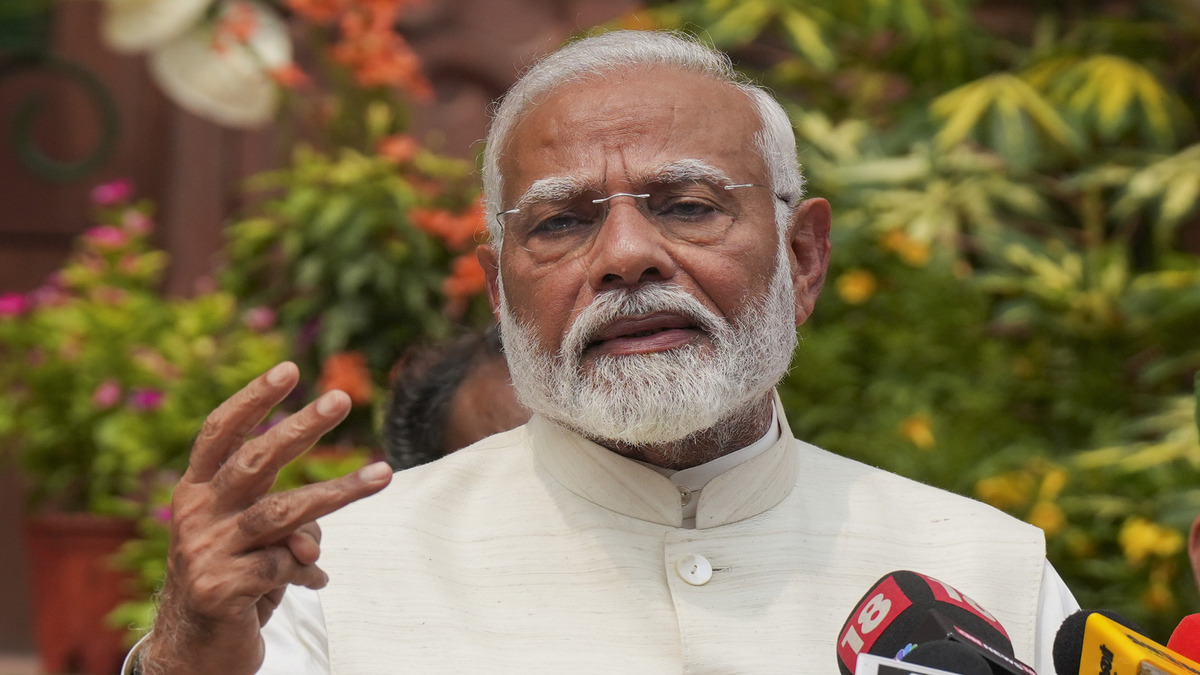The Shanghai Cooperation Organisation (SCO) is slated to be held on July 3 and 4 in Kazakhstan’s capital Astana.
India will be represented by External Affairs Minister S Jaishankar after Prime Minister Narendra Modi decided to skip the meeting.
The SCO was founded at a summit in Shanghai in 2001 by the presidents of Russia, China, the Kyrgyz Republic, Kazakhstan, Tajikistan and Uzbekistan.
Comprising India, China, Russia, Pakistan, Kazakhstan, Kyrgyzstan, Tajikistan and Uzbekistan, the SCO is an influential economic and security bloc that has emerged as one of the largest transregional international organisations.
But what do we know about the summit? And why isn’t Modi attending this time?
Let’s take a closer look:
What we know about summit
Kazakhstan is hosting the summit in its capacity as the current chair of the grouping.
S Jaishankar will lead the Indian delegation to Astana for the summit, the MEA said.
He is likely to meet his Chinese counterpart Wang Yi on the sidelines of the summit.
If it takes place, it will be the first high-level meeting between Indian and Chinese officials after the formation of Prime Minister Narendra Modi’s 3.0 government following the recent general elections in India.
According to The Times of India, the summit will examine “counterterrorism in the backdrop of the growing footprint of ISIS in Eurasia and growing radicalisation.”
India on Tuesday said the leaders of the grouping are expected to review its activities over the past two decades and discuss prospects of multilateral cooperation.
Impact Shorts
More ShortsThe situation in Afghanistan, the Ukraine conflict and boosting overall security cooperation among the SCO member countries are expected to figure in the summit.
India’s priorities in SCO are shaped by the prime minister’s vision of a ‘SECURE’ SCO, the Ministry of External Affairs (MEA) said.
SECURE stands for Security, Economic cooperation, Connectivity, Unity, Respect for sovereignty and territorial integrity, and Environmental protection.
“At the summit, the leaders are expected to review the organisation’s activities over the past two decades and discuss the state and prospects of multilateral cooperation,” it said.
“Topical issues of regional and international importance are also expected to be discussed at the meeting,” it said in a statement.
India was the chair of the SCO last year. It hosted the SCO Summit in the virtual format last July.
Why isn’t PM Modi attending?
The Indian prime minister usually attends the SCO – which provides an opportunity for heads of the state of the eight-member bloc to meet on the sidelines of the summit.
Indeed, India had earlier said Modi would attend the SCO meet.
A security team had even visited Kazakhstan to prepare for Modi’s trip, as per Hindustan Times.
According to The Wire, the official reason India has given for Modi dropping out is that the dates of the SCO conflicted with that of the first session of India’s Parliament.
As per The Times of India, Modi has been constantly attending the SCO since 2015 – when India wasn’t a full member.
India joined the grouping despite China and Russia having a massive influence in the group to promote its own interests in Central Asia.
“Participation in SCO summits has also helped India maintain the facade of multi-alignment, amid the rapidly growing ties with the US,” the piece noted.
But a look at recent history shows that Modi and Xi haven’t had much interaction at summits.
According to The Times of India, Modi and Xi met only briefly at the BRICS Summit in South Africa last year.
They also had a brief interaction at the Bali G20.
Modi and Xi did not meet at the 2022 SCO Summit in Samarkand.
Modi skipping the summit is therefore tinged with significance given that relations between the two nations have also remained frozen over the stand-off in Eastern Ladakh.
According to The Times of India, India recently let a US delegation visit Dharamsala – drawing protests from China.
New Delhi has also refused to let direct flights with Beijing resume.
Relations between the two countries hit a low ever since the eastern Ladakh border stand-off erupted on 5 May, 2020, following a violent clash in the Pangong Tso (lake) area near Galwan.
Since the May 2020 clashes, the two sides have so far held 21 rounds of Corps Commander-level talks to resolve the stand-off.
The 22nd meeting is due to be held.
According to the Chinese military, the two sides have so far agreed to disengage from four points namely the Galwan Valley, the Pangong Lake, Hot Springs, and Jianan Daban (Gogra) in eastern Ladakh.
India is pressing the People’s Liberation Army (PLA) to disengage from the Depsang and Demchok areas, maintaining that there cannot be restoration of normalcy in its relations with China as long as the state of the borders remains abnormal.
For its part, China continues to maintain that the boundary question does not represent the entirety of China-India relations, and it should be placed appropriately in bilateral relations and managed properly.
As per The Times of India, the last high-level talks in February witnessed both sides agreeing to keep the peace but saw no concrete results.
People in the know told the newspaper there was no tangible forward movement in the talks.
The likely meeting between Jaishankar and Wang also gains importance in this light.
India’s association with the SCO began in 2005 as an observer country. It became a full member state of SCO at the Astana summit in 2017.
India has shown a keen interest in deepening its security-related cooperation with the SCO and its Regional Anti-Terrorism Structure (RATS), which specifically deals with issues relating to security and defence.
Pakistan became its permanent member along with India in 2017.
With inputs from agencies
)